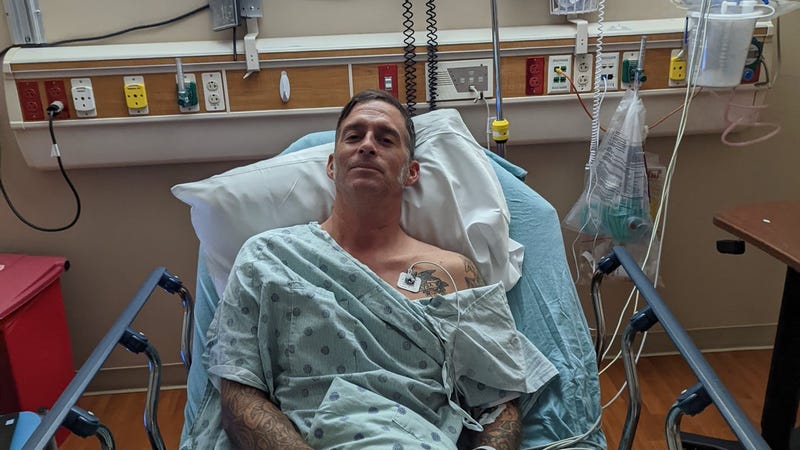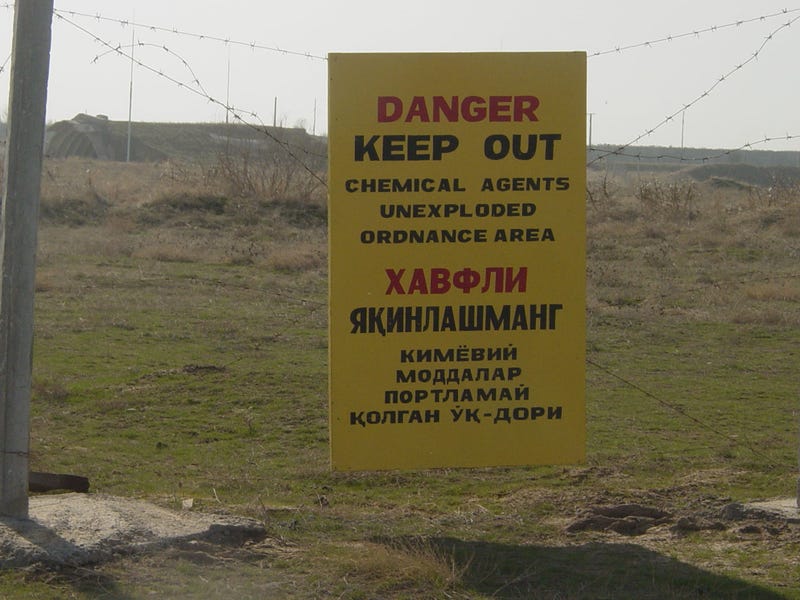
An Army veteran who became an “accidental advocate” for those like him who were sickened as a result of being exposed to toxins during their military service will not benefit from the recent passage of the PACT Act.
Mark Jackson told CBS' "Eye on Veterans" podcast that his private insurer, Blue Cross/Blue Shield informed him it would not cover the nearly $5,000 per month cost of his osteoporosis medication the day the legislation became law.

“At least private insurance paid for it for a year, it’s a two-year regime,” he said.
Signed into law by President Joe Biden on Aug. 10, the Sgt. 1st Class Heath Robinson Honoring Our Promise to Address Comprehensive Toxins or PACT Act expands health care for around 3.5 million post-9/11 combat veterans exposed to toxins while serving in Iraq and Afghanistan, creates a framework for the establishment of future presumptions of service connection related to toxic exposure, expands VA’s list of service presumptions by 23 illnesses and improves the resources to support VA claims processing.
Jackson, who is 45, has brittle bones, anemia, a thyroid disorder, and a rare systemic infection – all of which were caused by his exposure to toxins while serving in Afghanistan and Uzbekistan, according to his doctors.
“I hate to be cynical, but when your body’s falling apart with you inside it, it gets tiring,” he said.
In what he calls a “loophole,” none of the diseases Jackson has been diagnosed with are covered under the law. The Department of Veterans Affairs has also denied some of his claims for benefits.
“None of the things that are affecting me are covered,” he said. “This was a partial answer to a problem that will be ongoing for the next 50 years until we’re all dead.”
Jackson also noted that the PACT Act also includes additional benefits for veterans who were exposed to Agent Orange during the Vietnam War.
“That’s my father’s generation of veterans,” he said. “Just doing the math, I should bet my benefits by 2047.”
Jackson was in Army intelligence and was among the thousands of service members who were stationed at Karshi-Khanabad Air Base in southeastern Uzbekistan over a four-year period following the 9/11 attacks. The base, known as K2, had been abandoned by the former Soviet Union for about 10 years when American troops arrived there in September of 2001.
Jackson kept “war journals” where he wrote about his experiences at K2. He said the air there smelt like a combination of burning plastic and diesel. Jackson also described an area known as “Skittles Pond” because it would change colors on an almost daily basis and “black goo” that oozed up from the ground.

“What that smell is, is both the machinery of war and its also the burn pits,” he explained. “Think cold molasses, but with a smell and presence that burns your lungs and eyes.”
Asked by CBS News why the drug was denied, and whether the medical review team considered Jackson's military service and toxic exposure, a spokesperson for the Blue Cross and Blue Shield Federal Employee Program said, "We do not comment on the personal information of our members in accordance with our privacy standards. Members have the right to request reconsideration of decisions they disagree with using the instructions outlined in our communications to them."
Jackson is currently considering what his next steps will be.
Reach Julia LeDoux at Julia@connectingvets.com.
Reach Phil Briggs at Phil@connectingvets.com.


